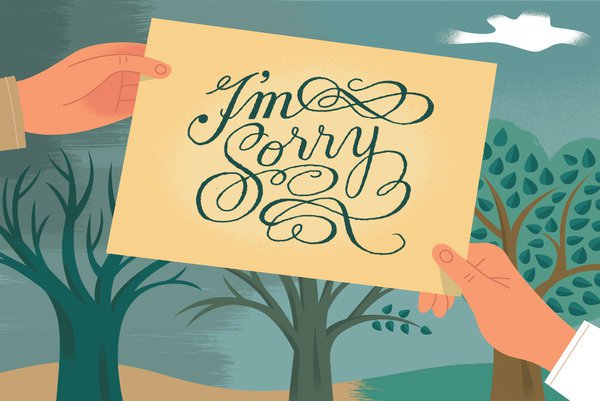Aaccording to the psychologist and author Harriet Lerner, the wording of my apology was just what the “doctor” would have ordered. In the very first chapter of her new book, “Why Won’t You Apologize?,” Dr. Lerner points out that apologies followed by rationalizations are “never satisfying” and can even be harmful.
“When ‘but’ is tagged on to an apology,” she wrote, it’s an excuse that counters the sincerity of the original message. The best apologies are short and don’t include explanations that can undo them.

Nor should a request for forgiveness be part of an apology. The offended party may accept a sincere apology but still be unready to forgive the transgression. Forgiveness, should it come, may depend on a demonstration going forward that the offense will not be repeated.
“It’s not our place to tell anyone to forgive or not to forgive,” Dr. Lerner said in an interview. She disputes popular thinking that failing to forgive is bad for one’s health and can lead to a life mired in bitterness and hate.

Leave a Reply